
Aubrey Vincent Beardsley was an English illustrator and author. His black ink drawings were influenced by Japanese woodcuts, and depicted the grotesque, the decadent, and the erotic. He was a leading figure in the aesthetic movement which also included Oscar Wilde and James McNeill Whistler. Beardsley's contribution to the development of the Art Nouveau and poster styles was significant despite his early death from tuberculosis. He is one of the important Modern Style figures.

Crispin Hellion Glover is an American actor, filmmaker, author, and musician.
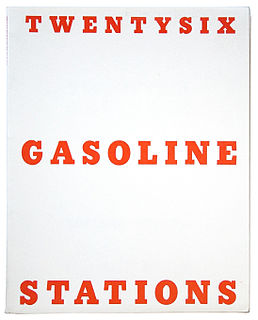
Artists' books are works of art that utilize the form of the book. They are often published in small editions, though they are sometimes produced as one-of-a-kind objects.

Howard Pyle was an American illustrator and author, primarily of books for young people. He was a native of Wilmington, Delaware, and he spent the last year of his life in Florence, Italy.

A rat-catcher is a person who kills or captures rats as a professional form of pest control. Keeping the rat population under control was practiced in Europe to prevent the spread of diseases, most notoriously the Black Death, and to prevent damage to food supplies. In modern developed countries, such a professional is otherwise known as a pest control operative or pest exterminator.

Willard is a 1971 American horror film directed by Daniel Mann and written by Gilbert Ralston, based on Stephen Gilbert's novel Ratman's Notebooks. Bruce Davison stars as social misfit Willard Stiles, who is squeezed out of the company started by his deceased father. His only friends are a couple of rats raised at home, including Ben and Socrates, and their increasing number of friends. When Socrates is killed by Willard's boss, he goes on a rampage using his rats to attack.
Paul Jenkins was an American abstract expressionist painter.

Trent Harris is an independent filmmaker based in Salt Lake City, Utah. He wrote and directed the offbeat 1991 comedy Rubin and Ed, in which Crispin Glover and Howard Hesseman wander the desert looking for a suitable place to bury a frozen cat. In 2001 he released The Beaver Trilogy, a compilation film that documents his obsession with a man called Groovin' Gary. The Beaver Trilogy features Sean Penn and Crispin Glover as Groovin' Gary in part two and part three, respectively. He also wrote and directed Plan 10 from Outer Space, Delightful Water Universe, and Welcome to the Rubber Room.

Ben is a 1972 American drama-thriller film directed by Phil Karlson and starring Lee Montgomery, Joseph Campanella, and Arthur O'Connell. It is a sequel to the film Willard (1971). The film follows a lonely boy named Danny Garrison who befriends Willard's former pet rat named Ben. Ben becomes the boy's best friend, protecting him from bullying and keeping his spirits up in the face of a heart condition. However, Ben forms an army of deadly rodents while the police attempt to control it.
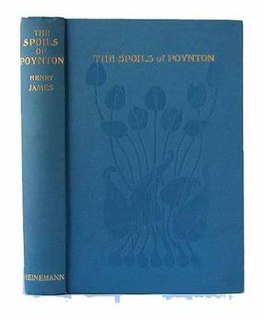
The Spoils of Poynton is a novel by Henry James, first published under the title The Old Things as a serial in The Atlantic Monthly in 1896 and then as a book in 1897. This novel traces the shifting relations among three people and a magnificent collection of art, decorative arts, and furniture arrayed like jewels in a country house called Poynton. Mrs. Gereth, a widow of impeccable taste and iron will, formed the collection over decades only to have it torn away from her when her son Owen decides to marry a frivolous woman. The story is largely told from the viewpoint of Fleda Vetch, a keenly intelligent young woman of straitened circumstances who, shortly after becoming the intimate friend and companion of Mrs. Gereth, falls in love with Owen. Sympathetic to Mrs. Gereth's anguish over losing the fine things she patiently collected, Fleda shuttles between the estranged mother and son, becoming ever more involved in their affairs.
Douglas Glover is a Canadian writer. He was raised on his family's tobacco farm just outside Waterford, Ontario. He has published five short story collections, four novels, three books of essays, and The Enamoured Knight, a monograph on Don Quixote and novel form. His 1993 novel, The Life and Times of Captain N., was edited by Gordon Lish and released by Alfred A. Knopf. His most recent book is an essay collection, The Erotics of Restraint: Essays on Literary Form.

What Is It? is a 2005 American surrealist film written, edited, co-produced and directed by Crispin Glover and starring Glover, Fairuza Balk, and Steven C. Stewart.

It is Fine! Everything Is Fine. is a 2007 American independent drama film directed by David Brothers and Crispin Glover. It was written by and stars Steven C. Stewart. It also stars Margit Carstensen.

A print room is a room in an art gallery or museum where a collection of old master and modern prints, usually together with drawings, watercolours, and photographs, are held and viewed.
Stephen Gilbert was a Northern Irish novelist, businessman and nuclear disarmament activist. On the strength of his early novels in the 1940s, Gilbert was accounted by E. M. Forster as "a writer of distinction", but he is chiefly remembered as the author of Ratman's Notebooks (1968) which sold over 1 million copies and was twice made into a horror film named Willard in the United States.

The Nasher Museum of Art is the art museum of Duke University, and is located on Duke's campus in Durham, North Carolina, United States. The Nasher, along with Dartmouth's Hood Museum of Art and Princeton's Art Museum, has been recognized as a place that "raises the cultural bar" on college campuses.
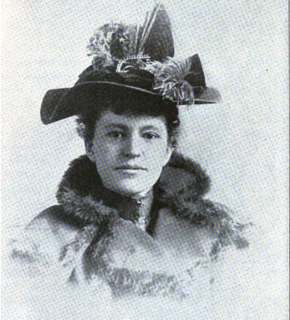
Blanche Annie Dillaye was a 19th-century artist from the U.S. state of New York. After studying at the Pennsylvania Academy of Fine Arts, she became one of the significant figures in the American etching revival movement. She acquired prominence in one of the most difficult of arts, and was accepted in some respects as an authority in a field where far more men than women were in competition.
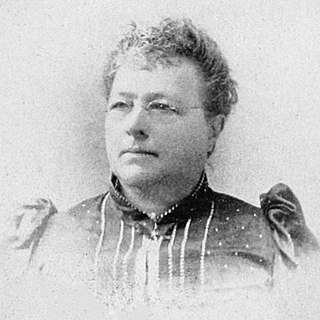
Emma Pike Ewing was an American author and educator on housekeeping and cooking. Ewing hailed from New York. After the American Civil War, she served as dean, Chautauqua Assembly Cooking School; professor domestic economy, Iowa Agricultural College; director Model School of Household Economics; and affiliated with Marietta College, Ohio, Model Home School of Household Economics. Her contemporaries included, Mary Johnson Bailey Lincoln, Marion Harland, Fannie Merritt Farmer, Sarah Tyson Rorer, Maria Parloa, Gesine Lemcke, Ella Morris Kretschmar, and Linda Hull Larned. Ewing was the author of several cookbooks such as Cooking and Castle-building (1880), Soup and Soup Making (1882), Bread and Bread Making (1883), Salad and Salad Making (1884), A Text-book of Cookery, for Use in Schools (1899), Cookery Manuals (1890), and The Art of Cookery: A Manual for Homes and Schools (1896). She died in 1917.
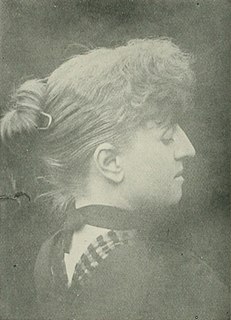
Dorothea Rhodes Lummis Moore was an American physician, writer, newspaper editor, and activist. Although a successful student of music in the New England Conservatory of Music, in Boston, she entered the medical school of Boston University in 1881, and graduated with honors in 1884. In 1880, she married Charles Fletcher Lummis, and in 1885, removed to Los Angeles, California, where she began the practice of medicine. She served as dramatic editor of the Los Angeles Times and also musical editor and critic on that journal. She was instrumental in the formation of a humane society which was brought about through her observations of the neglect and cruelty to the children of the poor, and Mexican families, visited in her practice; and the establishment of the California system of juvenile courts. She wrote for Puck, Judge, Life, Women's Cycle, San Francisco Argonaut, and the Californian, as well as contributing many important papers to the various medical journals of the United States. After divorcing Charles Lummis in 1891, she married secondly Dr. Ernest Carroll Moore in 1896. She was a confidante of Charlotte Perkins Gilman, and a life-long friend of Mary Austin.
















